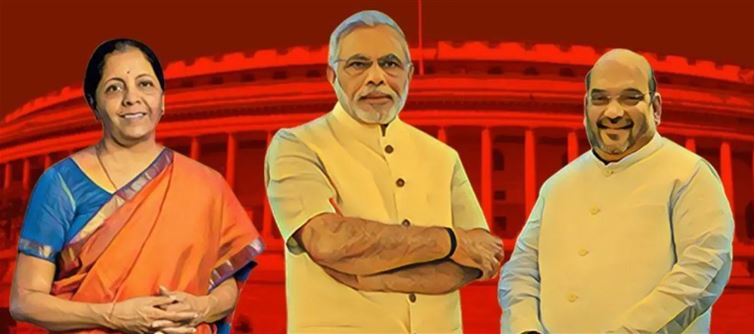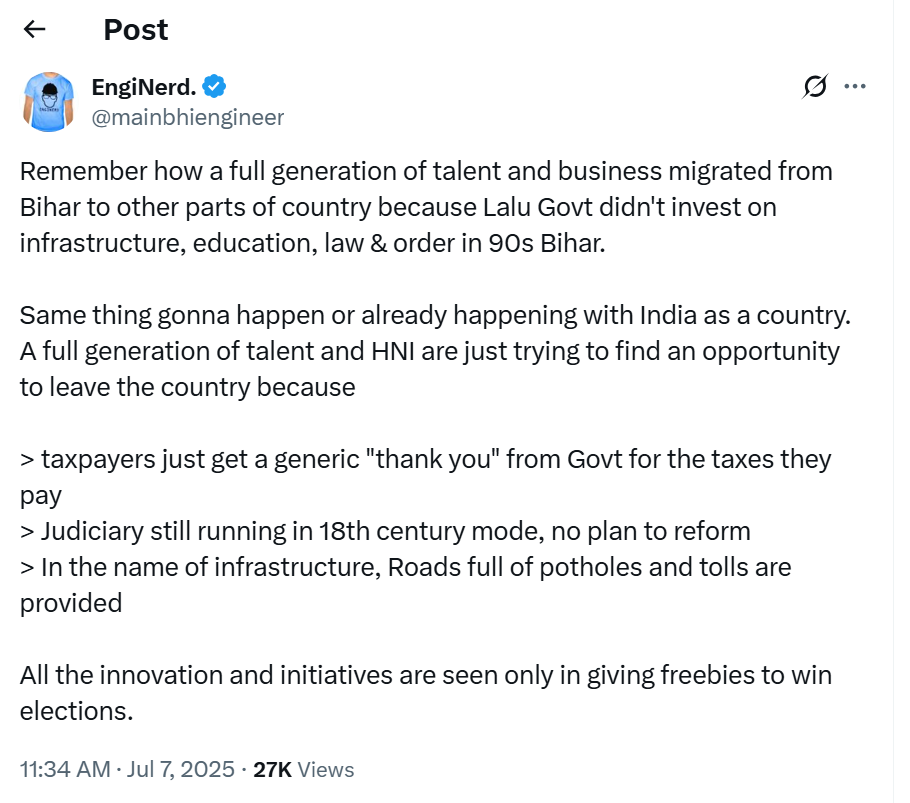
A whole generation of bright minds, professionals, and entrepreneurs left for greener pastures—Delhi, Mumbai, Bangalore—not out of choice, but out of necessity. Their departure contributed to a brain drain that took decades for the state to even begin to recover from.
 Many observers today see alarming parallels between that period in bihar and the current trajectory of india as a nation. Despite being a growing economy with enormous potential, there is a growing sentiment that the country is failing its taxpayers and professionals. High Net-Worth Individuals (HNIs), skilled professionals, and entrepreneurs increasingly feel disillusioned.
Many observers today see alarming parallels between that period in bihar and the current trajectory of india as a nation. Despite being a growing economy with enormous potential, there is a growing sentiment that the country is failing its taxpayers and professionals. High Net-Worth Individuals (HNIs), skilled professionals, and entrepreneurs increasingly feel disillusioned.Taxpayers, who form the backbone of the economy, are offered little more than token appreciation, while the services and governance they help fund remain archaic or dysfunctional. The judiciary still operates with 19th-century inefficiencies—delayed justice, backlog of cases, outdated procedures—while ambitious judicial reforms remain either cosmetic or completely absent.
Meanwhile, infrastructure projects are showcased as symbols of progress, but on the ground, citizens face roads riddled with potholes, ever-rising toll charges, and urban planning disasters. Innovation is more visible in the arena of electoral freebies than in governance or public service delivery. Welfare schemes, while necessary for the vulnerable, often become tools for short-term political gain rather than long-term empowerment.
As a result, the country risks losing its most valuable assets—its intellectual capital and economic drivers—to more stable and forward-looking nations. If this trend continues unchecked, india could face a repeat of Bihar’s lost decade, but on a national scale.




 click and follow Indiaherald WhatsApp channel
click and follow Indiaherald WhatsApp channel